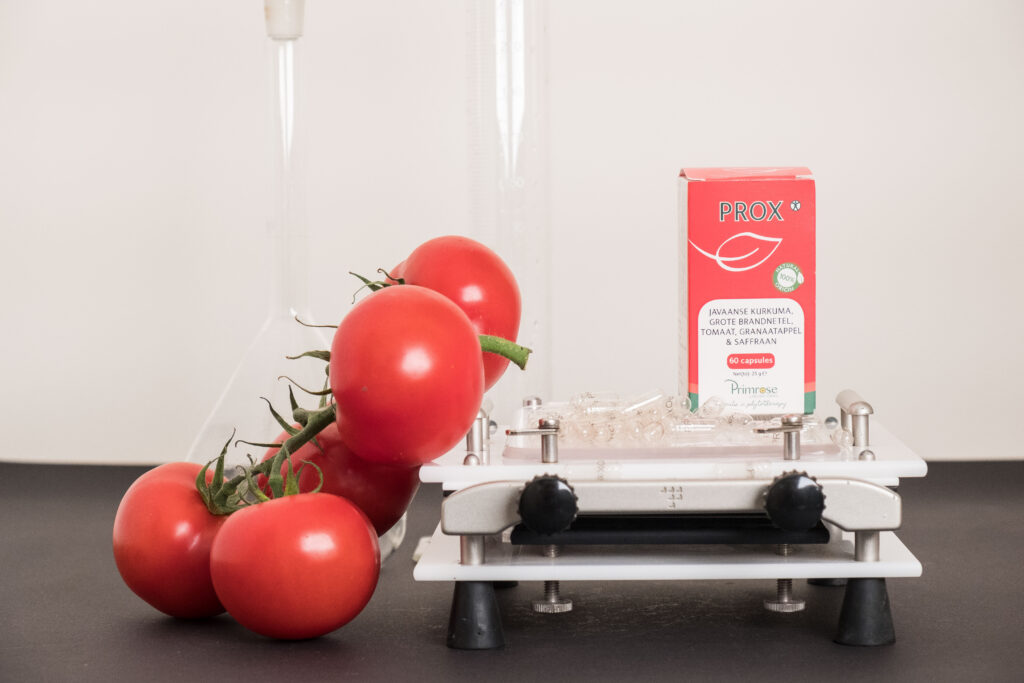Tomatoes, beloved in kitchens around the world, are more than just a tasty addition to your meals. They are a potent source of health benefits, thanks to their rich composition of bioactive compounds such as lycopene. These natural components make the tomato a valuable ally in the fight against various diseases, including prostate cancer and inflammatory conditions.
A Rich Source of Lycopene
The primary active ingredient in tomatoes is lycopene, a powerful carotenoid responsible for the tomato’s red color. Lycopene is an exceptionally effective antioxidant that plays a crucial role in neutralizing harmful free radicals in the body. Free radicals are unstable molecules that cause cellular damage, contributing to aging and the development of chronic diseases, such as cancer and cardiovascular conditions.
Anticancer Properties
Lycopene is well-known for its anticancer properties, particularly in the prevention and treatment of prostate cancer. Numerous scientific studies have shown that regular consumption of tomato products can reduce the risk of prostate cancer. These cancer-fighting effects are attributed to lycopene’s ability to induce apoptosis (programmed cell death) in cancer cells, as well as its antiproliferative, antiadhesive, and antimigratory properties.
Clinical studies have also observed that lycopene can significantly lower prostate-specific antigen (PSA) levels. Elevated PSA levels are often associated with prostate cancer, and lycopene’s ability to reduce these levels highlights its potential as a natural remedy in the fight against this disease.
Anti-inflammatory Effects
In addition to its anticancer properties, tomatoes also possess strong anti-inflammatory effects. Inflammation is a key factor in many chronic diseases, including cardiovascular diseases, diabetes, and autoimmune disorders. Lycopene, along with other antioxidants in tomatoes, helps reduce inflammation in the body. This can be particularly beneficial for individuals suffering from chronic inflammatory conditions and may even contribute to reducing the risk of recurrent urinary tract infections (UTIs).
Cardiovascular Protection
Tomatoes also offer protection for the heart and blood vessels. The antioxidant activity of lycopene helps prevent oxidative damage to LDL cholesterol, which is essential in preventing atherosclerosis. Additionally, tomatoes have a positive effect on blood pressure and overall cardiovascular health, which can lower the risk of heart attacks and strokes.
Takeaways
Tomatoes are more than just a common food; they are a powerful natural medicine. With their rich content of lycopene and other bioactive compounds, they offer a wide range of health benefits, from cancer prevention to anti-inflammatory effects and cardiovascular protection. By incorporating tomatoes regularly into your diet, you can harness these natural health benefits and contribute to better overall health.
REFERENCES
Tang L, Jin T, Zeng X, & Wang JS (2005) Lycopene inhibits the growth of human androgen-independent prostate cancer cells in vitro and in BALB/c nude mice. The Journal of nutrition 135:287-290
Hwang ES & Bowen PE (2005) Effects of tomato paste extracts on cell proliferation, cell-cycle arrest and apoptosis in LNCaP human prostate cancer cells. BioFactors 23:75-84
Ford NA, Elsen AC, Zuniga K, Lindshield BL, & Erdman JW, Jr. (2011) Lycopene and apo-12’-lycopenal reduce cell proliferation and alter cell cycle progression in human prostate cancer cells. Nutrition and cancer 63:256-263
Elgass S, Cooper A, & Chopra M (2014) Lycopene treatment of prostate cancer cell lines inhibits adhesion and migration properties of the cells. International journal of medical sciences 11:948-954

